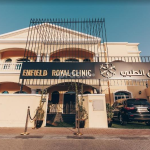A posterior root canal in Dubai is an essential dental procedure that addresses the health of teeth at the back of your mouth, typically molars and premolars. While many people are aware of root canals for front teeth, the significance of posterior root canals cannot be understated. These back teeth play a vital role in chewing and maintaining overall oral function. When left untreated, infection or damage in these areas can lead to severe dental issues and even tooth loss. In this article, we will explore why posterior root canals are crucial for long-term dental health, specifically focusing on the treatment process in Dubai.
Understanding the Importance of Posterior Teeth:
Posterior teeth, which include molars and premolars, are essential for breaking down food. These teeth endure significant pressure during chewing, which makes them more susceptible to decay and infection. When cavities or trauma affect these teeth, the infection can extend to the pulp, which houses nerves and blood vessels. This is where a root canal treatment becomes necessary.
Why Posterior Teeth Are More Vulnerable:
- Heavy chewing load: Posterior teeth are responsible for grinding and crushing food. This constant pressure increases their vulnerability to decay and damage.
- Difficult accessibility: The back teeth are harder to clean effectively, increasing the likelihood of plaque buildup, which can lead to cavities and infections.
- Delayed pain detection: Often, people may not notice pain in the back of their mouth immediately, leading to advanced infections that require more complex treatments.
The Role of a Posterior Root Canal in Dubai:
A posterior root canal treatment involves removing infected or damaged tissue from the pulp of the tooth, cleaning the canals, and sealing the space to prevent further infection. In Dubai, advanced technology and skilled dental professionals ensure that the process is as effective and comfortable as possible. This procedure is crucial for saving teeth that would otherwise need extraction.
Benefits of a Posterior Root Canal Treatment:
- Pain Relief: A posterior root canal addresses the pain caused by the infection, alleviating discomfort and allowing you to return to normal activities.
- Prevents Tooth Loss: Without proper treatment, the infection can spread to surrounding tissues, leading to tooth loss. A root canal preserves the tooth, saving you from the need for expensive implants or bridges.
- Restores Function: The back teeth play a vital role in chewing. After the procedure, the tooth can function normally, restoring your ability to eat comfortably.
- Long-Term Health Benefits: By treating the infection early, a root canal prevents further complications, such as abscesses or bone loss, contributing to long-term oral health.
The Posterior Root Canal Procedure in Dubai:
The process of a posterior root canal treatment is quite detailed and requires the expertise of a skilled dentist. Here is a step-by-step breakdown of what to expect during the treatment in Dubai:
Step 1: Diagnosis and Assessment:
Before the procedure begins, your dentist will conduct a thorough examination, including X-rays, to determine the extent of the infection or damage to the tooth. This helps the dentist plan the most effective treatment approach.
Step 2: Anesthesia:
To ensure comfort throughout the process, local anesthesia is administered to numb the affected area. This allows you to undergo the procedure pain-free.
Step 3: Accessing the Root Canals:
The dentist will create a small opening in the crown of the posterior tooth to access the pulp chamber. From there, the infected or damaged tissue is removed.
Step 4: Cleaning and Shaping the Canals:
Once the infected pulp is removed, the dentist carefully cleans and shapes the canals to prepare them for filling. This step is critical for eliminating any remaining bacteria and preventing reinfection.
Step 5: Sealing the Tooth:
The cleaned root canals are filled with a biocompatible material, such as gutta-percha, to seal the space and prevent future infections. The opening is then sealed with a temporary filling.
Step 6: Final Restoration:
After the root canal, a permanent crown is usually placed on the tooth to restore its strength and functionality. The crown also provides a natural appearance, making the treated tooth blend seamlessly with your smile.
Advanced Technology in Posterior Root Canal Treatments in Dubai:
Dubai is known for its state-of-the-art dental facilities, where advanced technology enhances the effectiveness of treatments like posterior root canals. Some of the innovative tools and techniques include:
- 3D Imaging: Provides detailed images of the tooth and surrounding structures, ensuring accurate diagnosis and treatment planning.
- Laser Technology: Minimizes discomfort and promotes faster healing by precisely removing infected tissue.
- Microscopes: Allow dentists to see inside the tooth with high magnification, ensuring a thorough and precise treatment.
Aftercare and Recovery:
After undergoing a posterior root canal, proper aftercare is essential to ensure a smooth recovery. While most patients experience minimal discomfort after the procedure, it’s important to follow the dentist’s instructions carefully. Here are some tips for post-treatment care:
- Avoid chewing on the treated tooth until a permanent restoration is placed.
- Take prescribed pain relievers if necessary, but always follow the dentist’s instructions.
- Maintain good oral hygiene: Brush and floss regularly to prevent further infections.
Conclusion:
A posterior root canal in Dubai is a critical treatment for maintaining the long-term health of your teeth and overall oral well-being. With advanced techniques and expert care, this procedure not only saves teeth but also ensures they continue to function optimally for years to come. If you're experiencing tooth pain or discomfort, consult a skilled dentist in Dubai to assess your condition and determine if a root canal treatment is necessary. By addressing the issue early, you can avoid more complex dental problems in the future and enjoy a healthy smile for years to come.






Comments